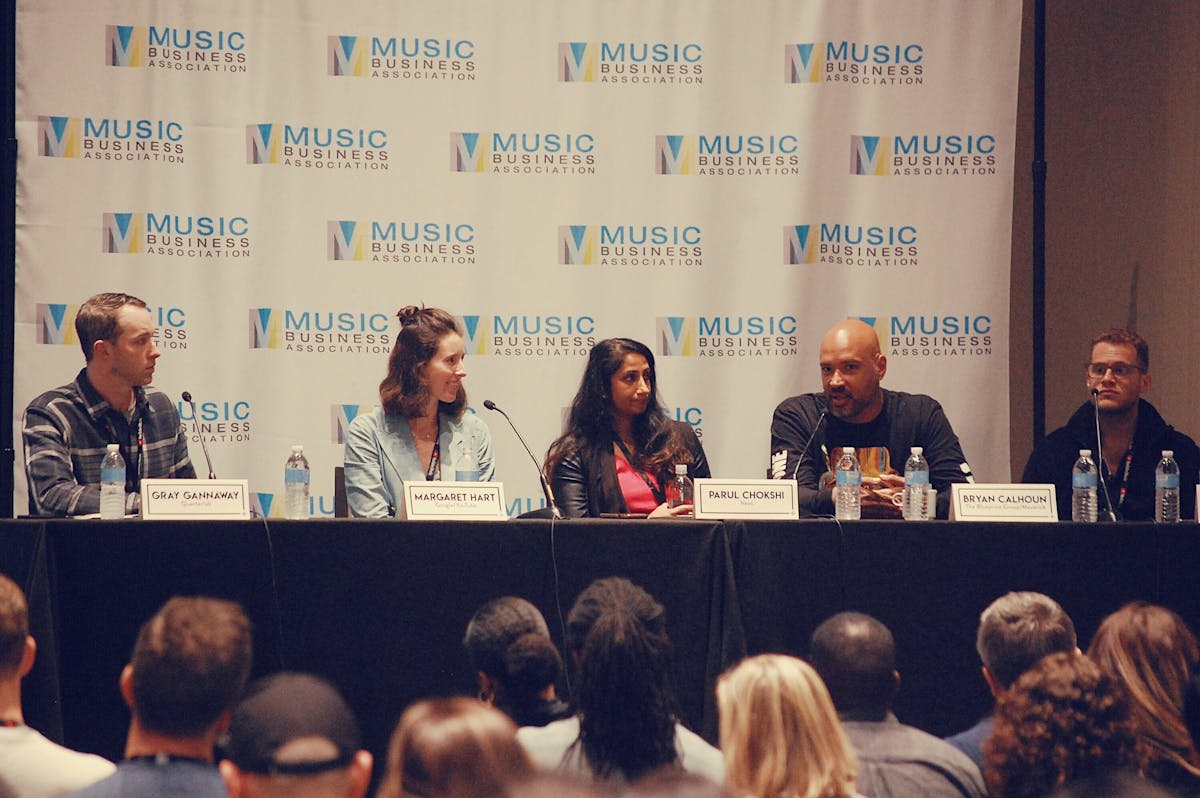
Ever wondered what makes the music industry tick? From chart-topping hits to behind-the-scenes deals, the music industry is a complex web of creativity, business, and technology. Whether you're an aspiring artist, a seasoned professional, or just a curious fan, understanding the ins and outs of this dynamic field can be both fascinating and beneficial. In this blog post, we'll dive into 28 facts about the music industry that will give you a deeper appreciation for the art and business of music. Get ready to uncover some surprising truths, debunk common myths, and gain a fresh perspective on the world of melodies and beats.
Key Takeaways:
- Music industry conferences are essential for networking, learning, and showcasing talent. They offer opportunities to connect with industry professionals, learn about the latest trends, and showcase artistic abilities.
- Conferences provide a platform for artists to perform, connect with industry leaders, and stay updated on industry trends. They also promote diversity and inclusion, fostering collaboration among professionals from around the world.
The Evolution of Music Industry Conferences
Music industry conferences have transformed over the years, becoming essential for networking, learning, and showcasing talent. Here are some fascinating facts about these events.
-
The first major music industry conference, MIDEM, started in 1967 in Cannes, France. It aimed to connect music professionals globally.
-
South by Southwest (SXSW) began in 1987 in Austin, Texas. It has since grown into one of the largest music, film, and interactive media festivals worldwide.
-
The International Music Summit (IMS) was founded in 2008 by Pete Tong. It focuses on electronic music and takes place in Ibiza, Spain.
-
Canadian Music Week (CMW) started in 1981. It features performances, workshops, and awards, attracting industry professionals from around the globe.
-
The New Music Seminar (NMS) was first held in 1980 in New York City. It played a crucial role in shaping the careers of many artists and industry professionals.
Networking Opportunities
Conferences offer unparalleled networking opportunities, connecting artists, producers, managers, and more.
-
Attendees often include top executives from major record labels, providing a chance to pitch new music directly.
-
Many conferences feature speed networking sessions, allowing participants to meet numerous industry professionals in a short time.
-
Informal networking events, like after-parties and mixers, are common. These settings often lead to valuable connections.
-
Some conferences offer mentorship programs, pairing newcomers with experienced industry veterans.
-
Virtual networking has become more prevalent, especially since the COVID-19 pandemic. Online platforms facilitate connections even when in-person events aren't possible.
Educational Sessions and Workshops
Learning is a significant component of music industry conferences, with sessions covering various topics.
-
Panels often feature industry experts discussing trends, challenges, and opportunities in the music business.
-
Workshops provide hands-on training in areas like music production, marketing, and legal issues.
-
Many conferences offer masterclasses with renowned artists and producers, sharing their expertise and experiences.
-
Legal clinics are sometimes available, offering free advice on contracts, copyright, and other legal matters.
-
Attendees can learn about the latest technology in music, such as AI in music production and blockchain for rights management.
Showcasing Talent
Conferences are prime venues for artists to showcase their talent to industry professionals and fans.
-
Many conferences include live performances, giving artists a platform to reach new audiences.
-
Showcases often feature emerging artists, providing them with exposure and potential career opportunities.
-
Some events have battle-of-the-bands competitions, where artists compete for prizes and recognition.
-
Music video screenings are also common, highlighting the visual aspect of an artist's work.
-
Conferences sometimes host songwriting contests, encouraging creativity and collaboration among participants.
Industry Trends and Innovations
Staying updated on industry trends and innovations is crucial for success in the music business.
-
Conferences often highlight emerging genres and subcultures, helping attendees stay ahead of the curve.
-
Discussions on streaming services and their impact on the industry are frequent, reflecting their growing importance.
-
The role of social media in music promotion is a hot topic, with sessions dedicated to strategies and best practices.
-
Innovations in live performances, such as virtual concerts and augmented reality experiences, are explored.
-
Sustainability in the music industry is gaining attention, with conferences addressing eco-friendly practices and initiatives.
Global Reach and Diversity
Music industry conferences attract a diverse, global audience, fostering cross-cultural exchange and collaboration.
-
Events like WOMEX (World Music Expo) celebrate world music, bringing together artists and professionals from various cultures.
-
Many conferences feature international pavilions, showcasing music and industry trends from different countries.
-
Diversity and inclusion are increasingly prioritized, with sessions and initiatives aimed at promoting equality in the music industry.
Final Notes on Music Industry Conferences
Music industry conferences are more than just gatherings. They’re where networking, learning, and innovation collide. Attendees gain insights from industry leaders, discover new technologies, and build connections that can shape careers. These events often feature workshops, panels, and performances, offering a comprehensive view of the music world. Whether you’re an artist, producer, or enthusiast, conferences provide a unique platform to stay updated and inspired. They’re essential for anyone looking to thrive in the ever-changing music landscape. So, next time you hear about a music industry conference, consider attending. You never know what opportunities might arise or what new knowledge you’ll gain. Keep an eye out for these events and make the most of what they offer.
Frequently Asked Questions
Was this page helpful?
Our commitment to delivering trustworthy and engaging content is at the heart of what we do. Each fact on our site is contributed by real users like you, bringing a wealth of diverse insights and information. To ensure the highest standards of accuracy and reliability, our dedicated editors meticulously review each submission. This process guarantees that the facts we share are not only fascinating but also credible. Trust in our commitment to quality and authenticity as you explore and learn with us.
